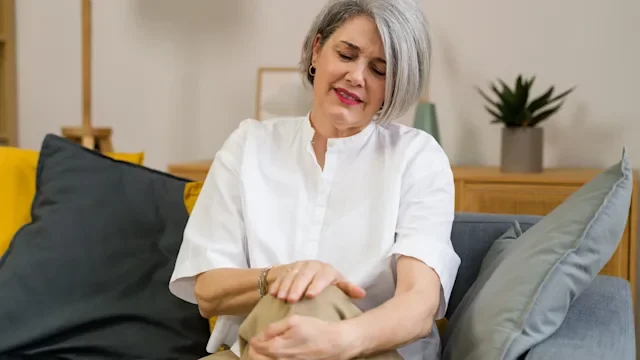Key takeaways:
After months of severe abdominal pain, Kylie Payne was diagnosed with gallstones and ulcerative colitis, two conditions affected by diet.
Kylie already followed a healthy diet, but she had to change the way she eats to manage her symptoms.
Kylie’s daily meals include nutritious low-fat foods like salad, fruit, vegetables, lean proteins, and dairy-free yogurt.
When Kylie Payne visited the emergency room with stomach pain in 2023, doctors told her she had the flu.
“I had stomach flu a month before, and my symptoms were completely different,” says Kylie, a 22-year-old nanny from Vineyard, Utah.
Without a better option, she went home with a prescription for pain medication. But, after a few more months of being in pain, Kylie ended up in the ER two more times. Just like the first visit, she was told she had the flu each time.
Kylie tried to stick to the BRAT diet — bananas, rice, applesauce, and toast — to avoid nausea, which helped. But whenever she ate anything else, her symptoms came back.
“It was so frustrating,” she recalls.
Then, Kylie visited a gastroenterologist and relayed her family history of colon cancer. The doctor ordered a colonoscopy, and Kylie finally received a proper diagnosis. She found out that she had ulcerative colitis, a condition that also ran in her family. Her older sister had been diagnosed with it at the same age, 22.
Kylie followed all the guidelines for changing her diet. Still, her stomach pain continued. Her primary care doctor suspected Kylie might also have gallstones, which an ultrasound confirmed. Getting that diagnosis had taken 7 long, painful months.
“I had no idea what gallstones were. You hear about, maybe, your grandma getting them,” Kylie says. “I didn’t even know they ran in my family. But my grandmother actually had her gallbladder removed when she was in her 60s.”

As a fit, healthy young woman, Kylie was stunned by the diagnosis. Though, her doctor told her the gallstones were likely related to her genes.
- PrednisoneGeneric Deltasone and Rayos and Sterapred
- MedrolMethylprednisolone
- KenalogTriamcinolone
Kylie is planning to have a cholecystectomy — surgery to remove her gallbladder — in the future. Until then, she’s treating her condition with medication, good stress management, and careful nutrition.
She follows a diet that helps reduce her symptoms. But learning a different way of eating hasn’t been easy.
How gallstones and ulcerative colitis changed her eating habits
Eating nutritiously isn’t new for Kylie. But her diagnosis forced her to be more careful about her food choices.
Some healthy foods like avocados are now off limits because of their high fat content, which can contribute to gallstones. Burgers and fries are no longer on the menu. Neither are most sweet treats and dairy products. She eats lean turkey occasionally but limits most other meats.


Dealing with cravings is one of Kylie’s biggest challenges. “I do love pizza,” she says. “So I’m trying to find a healthy alternative, like pizza with cauliflower crust.”
The last holiday season was tough, as she watched people enjoying sweets that she needed to avoid. Going out with friends is challenging, too.
“Everyone’s eating dessert. You can eat it if you want to, but you know you’re going to pay the price,” she says. “You need a lot of self-control.”
She allows herself some splurges, like cake on her birthday. But she needs to be careful to avoid any ingredients that may aggravate her ulcerative colitis symptoms.
“I have gluten-free cookies in my pantry right now, which I love,” she says. “They’re actually doing OK with my stomach.”
What’s on the menu on a typical day
Kylie says that learning what foods work best for her is an ongoing process. She describes what she eats during a typical day in this TikTok video. Here are some of her favorite menus and menu items.
Breakfast
Cereal with almond milk
Smoothie with dairy-free yogurt, spinach, berries, and banana
Dairy-free yogurt with granola
Lunch
Salad
Low-fat proteins like tofu, beans, and egg whites
Dinner
Vegetables, including cooked carrots, raw spinach, and veggies with high water content like cucumber or celery
More low-fat proteins, including lean turkey
Dairy-free pizza with cauliflower crust
Snacks, desserts, and splurges
Fresh fruits like strawberries and pineapple
Dairy-free frozen yogurt
Granola bars
Her advice for eating well with a health condition
Kylie knows how hard it is to change your diet because of health issues, especially when you’re young. Here’s what she recommends to make the process easier:
Talk to your doctors and try to trust them. Healthcare professionals are a good resource for diet recommendations. Besides talking to her own doctors, Kylie follows a few health experts online.
Start with liquids. If your body tolerates liquids well, you can progress to easy-to-digest solid foods.
Find out what works best for you. Every person’s body and health history is unique. For example, Kylie tolerates most fruits well, so she eats fruit often.
Be patient with your body. It takes time to adapt to a different way of eating. Kylie says she’s still learning and making adjustments in her diet.
Medications and supplements are a part of her routine
Besides paying attention to nutrition, Kylie takes several medications and supplements. While the supplements haven’t helped her pain — and they’re expensive — she keeps taking them because they enhance her health, she says.
On top of the treatments she already takes, she’s planning to ask her doctor about whether bile salts, which she read can help gallstones, might be a good fit for her.


Kylie’s medications include:
Ursodiol to help break down gallstones
Cholestyramine to lower cholesterol, which can contribute to gallstones
Ondansetron for nausea
Dicyclomine to reduce intestinal cramping from ulcerative colitis
Setraline for anxiety and depression
And her list of supplements includes:
Superfood greens
Vitamin D
Iron
Supplements to help with stress
Kylie also exercises regularly by running and working out at the gym where she lives. “I think it helps my mental health more than my physical health,” she says.
In addition to her nutrition, medication and supplement, and exercise regimens, Kylie maintains supportive connections with other people. Getting encouragement from others helps her get through hard days, she says.
Many of her healthcare team members have been compassionate and supportive. Her family is an important source of strength for her. And she gets support from other young adults facing health challenges.
“I’ve been having some anxiety about my upcoming surgery,” she says. “So I’ve been going on YouTube and finding videos of girls my age who are getting their gallbladder removed for the same reason. I definitely feel heard and validated when I watch those or when I post on my TikTok.”
Her community keeps her connected
Kylie says people don’t always take her health conditions seriously, so connecting with other young people online has been a huge lifeline.
She pays it forward by sharing about her own journey. Being a fashion influencer, she says, she never expected to use her platform to talk about health. But she’s grateful for the opportunity.
“I think there’s a lot of people around us who are struggling with their health,” she says. “But we don’t know about it because nobody talks about it. I feel like I’m making a difference and making other girls feel heard. It makes me feel much better that I’m helping other women as much as I can.”
Kylie says she knows many young people who have serious health issues, and she encourages them to reach out and find support.
“You’re not alone,” she tells them. “You can talk about it. You can feel heard. And you can help others, too.”

Why trust our experts?

















